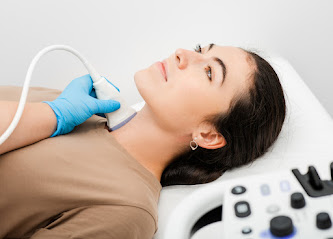In the changing scenario of mental health and brain science, a question is gaining popularity: What is QEEG brain mapping used for? This cutting-edge technology has an impact on people who want precise mental health evaluations and custom treatment plans.
At Shifa Health, we use QEEG brain mapping to help patients discover the basic patterns of brain activity that influence mood, behavior, and cognitive performance.
Understanding QEEG Brain Mapping
QEEG brain mapping, or Quantitative Electroencephalography, measures brain electrical activity. QEEG differs from standard EEG by turning raw brainwave data into visual maps that show areas of excessive or insufficient activity. These brain maps are then compared to normal databases to spot irregularities.
So, what purposes does QEEG brain mapping serve? It helps people grasp their cognitive and emotional challenges from a brain-based viewpoint. This proves useful for those who:
Can't concentrate or pay attention
Feel anxious or down all the time
Have mood swings, PTSD, or act out
Want to make their brain work better for personal growth
Clinical Uses and Advantages
At Shifa Health, we apply QEEG not to diagnose but also to monitor improvements and adjust therapy methods. Here are some main uses:
ADHD and Concentration Issues
QEEG helps to identify brain areas linked to attention control. This allows doctors to tell the difference between ADHD and other mental disorders leading to correct diagnosis and effective treatment.
Anxiety and Depression
This technology shows unusual patterns in parts of the brain connected to emotion control. Whether it's too much beta activity (common in anxiety) or not enough alpha waves (linked to depression), QEEG brain mapping points out the exact problems.
Sleep Disorders Brain mapping reveals neurological reasons for insomnia or messed up sleep patterns. This allows doctors to target those areas and therapy to fix these issues.
Traumatic Brain Injury (TBI) and PTSD QEEG spots ongoing problems in brain activity for people getting better after trauma or brain injury. This gives a plan to help heal the brain and improve thinking.
Why Pick Shifa Health for QEEG Brain Mapping?
Shifa Health boasts a skilled clinical team, cutting-edge QEEG systems, and a customized approach to care. Our QEEG process is safe, non-invasive, and aims to ensure comfort, whether you're new to us or seeking advanced mental health treatment.
We walk patients through each stage—from the initial brain mapping to creating and tweaking treatment plans. With QEEG data as the base, our therapies become more powerful, quantifiable, and suited to each person's needs.
Start Your Brain Mapping Journey with Shifa Health
Getting to know what QEEG brain mapping does can change how you approach mental wellness. If you need answers for ongoing emotional issues or want to boost your brain power, QEEG gives you clear, science-backed insights.
At Shifa Health, we think mental health care needs to be exact, tailored, and forward-looking. Our QEEG brain mapping helps you understand your brain health better, so you can lead a more balanced and happy life.
Want to move forward? Book your QEEG consultation with Shifa Health now and see how brain mapping can kick-start real healing.








